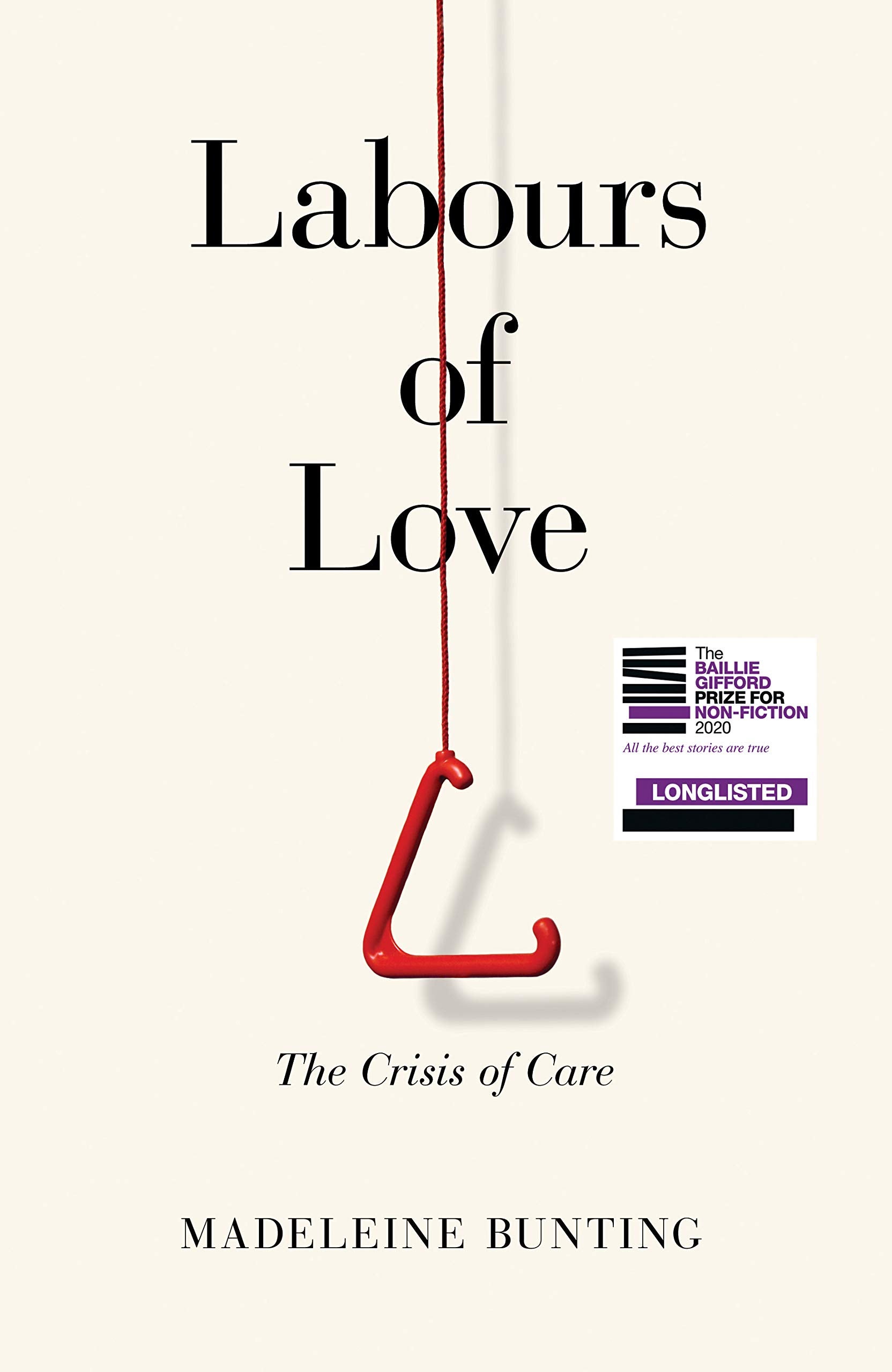Labours of Love: The book that blows the UK’s caring crisis wide open
This in-depth look at the care sector reveals the harm being done as bureaucracy takes precedence over humanity. It’s a brutal yet necessary read, says our books columnist Ceri Radford


Your support helps us to tell the story
From reproductive rights to climate change to Big Tech, The Independent is on the ground when the story is developing. Whether it's investigating the financials of Elon Musk's pro-Trump PAC or producing our latest documentary, 'The A Word', which shines a light on the American women fighting for reproductive rights, we know how important it is to parse out the facts from the messaging.
At such a critical moment in US history, we need reporters on the ground. Your donation allows us to keep sending journalists to speak to both sides of the story.
The Independent is trusted by Americans across the entire political spectrum. And unlike many other quality news outlets, we choose not to lock Americans out of our reporting and analysis with paywalls. We believe quality journalism should be available to everyone, paid for by those who can afford it.
Your support makes all the difference.The most quietly damning line of all in Labours of Love, Madeleine Bunting’s new book on Britain’s collapsing care system, is probably the following. After interviewing Danish students who had just taken a module of a social work degree in the UK, Bunting writes: “They admitted they were puzzled by their UK studies, which had been dominated by bureaucratic procedures and risk management. They had returned to Denmark with relief.”
Not outrage, but bafflement. Numbed as we are by headlines about over-stretched nurses and overwhelming paperwork, it takes an outside eye to make us realise that our current set-up is strange but not inevitable. Those Nordic students were skipping back to a degree in “social pedagogy”, a qualification that has no direct UK equivalent but spans training in the arts and humanities in order to better look after young children, the sick and the elderly.
It’s a creative, nurturing approach that stands in contrast to Britain’s emaciated care system, according to Bunting’s book. Labours of Love weaves together her experience shadowing employees across the care sector – nurses, doctors, social workers, in-home carers, care home workers – with context on the funding of public services.
The picture that emerges is enough to make you want to cryogenically freeze yourself at the age of 65. It also illustrates the heartless way our society exploits the workers we paradoxically expect to be compassionate. This is a world where nurses are too busy to take a sip of water for six hours; where staffing on a hospital ward is routinely on dangerous “red levels”; where a form needed to prove a child’s disability is so complicated it reduces an A&E consultant to tears; and where carers are given just 15 minutes to visit an elderly person with dementia – often not enough time to get them dressed, let alone make a cup of tea.
An experienced journalist, Bunting has an unerring knack for finding the details and human faces that make up the bigger story. She introduces us to John, a healthcare assistant who leaves home at 6.15am every day to work a 7am to 7.30pm shift. A deeply caring man, he gets patients with terminal cancer to smile and he washes the hair of the dead. For this, market forces value him at £19k a year, a wage so miserably low that he’s forced to put in a Sunday shift stacking shelves at a supermarket on top of his exhausting week. You can kick a ball around for £250,000 a week, package up poor people’s mortgages to sell like casino chips and then retire on your bonuses, but do the most important work in humanity and your life is one long slog.

As Bunting explains, part of the knotty problem we’re facing today is the decade of austerity that followed the financial crisis of 2008. The recruitment and retention of nurses has been damaged by below inflation pay increases from 2010 to 2018, with a shortfall of 108,000 nurses predicted by 2029. GPs are also struggling, with practice closures accelerating from 2013 despite government pledges to help. Outside the NHS, the picture is even worse: while healthcare funding has at least been ring-fenced, social care has not – and the pressures are ballooning along with our ageing population.
Bunting’s book reveals a grim pattern: inadequate funding means inadequate staffing means inadequate care, sparking scandals such as the neglect that killed hundreds at a Mid Staffordshire hospital in the 2000s – which in turn ushers in well-meaning but burdensome bureaucracy. Many nurses now spend more time on paperwork than they do with patients.
Bunting encapsulates the problem as the “marginalisation of relationships,” writing that: “The paperwork has become a way to avoid blame and manage risk. Sometimes, it is the main criteria by which care work is assessed and inspected, creating a cycle of behaviour which prioritises bureaucracy over people.” This reflects Bunting’s interview with Tom, a GP working at a practice in a poor area that still prioritises building relationships with patients. “We are very proud and committed to our model of care,” he says, “and feel it is not well understood. The focus is on what can be measured, such as data collection and targets. No one has found a way to measure continuity of care or its value, but we know it reduces hospital admissions.”
How could things be done differently? It’s a question that is touched on but not explored in depth. Bunting puts several benchmarks into comparison with other European countries, noting for example that the average hospital stay in France is 10 days, compared with seven in the UK; and that the ratio of nurses per 100,000 of the population is now almost half the level it is in Sweden, Germany and France. While understandably not within the scope of this book, it would be interesting to read more about how those health systems – which are a mix of public and private provision – balance market forces, tight government budgets and the humane, intangible side of care.
My own experience living in Switzerland – where everyone has to buy private insurance, but healthcare is heavily regulated by the government to ensure universal access – has been eye-opening. Used to the NHS, I found the process of browsing for a healthcare provider as if it was car insurance unsettling when I first moved here. Since then, I’ve got used to a level of care which feels slightly decadent. Even on the most basic healthcare insurance, after the birth of my child I spent five days in hospital recovering from an emergency C-section, which is considered normal here but contrasts to three to four days in the UK. Afterwards, the same midwife called on me at home every day while I needed it. My daughter has a designated paediatrician, which means the same doctor who advised me on my newborn’s sleep was there for every toddler bug and scrape, and chatted to my daughter about what she wanted to be when she grew up at her five-year health check. The Swiss system isn’t perfect and it’s easy to write this as someone who can afford the premiums, but for me this regulated, market-based approach has been the reverse of cold and impersonal; it has paid for an environment where professionals have the time to care.
The timing of Labours of Love is striking, as the pandemic prompts a wave of appreciation for nurses and doctors, while reminding us “of our physical vulnerability,” as Bunting writes in an author’s note. The Care Manifesto: The Politics of Interdependence, a series of essays written in the context of Covid-19, also calls for a fundamental overhaul of our attitude to care. Whether any of this translates into meaningful investment and reform to lift standards of care, and the living standards of caring professionals, is another question. But Labours of Love is an important and unsettling reminder that we can’t afford to wait for the next crisis, because the health system on which we all depend is itself in intensive care.
Labours of Love: The Crisis of Care by Madeleine Bunting is out now



Join our commenting forum
Join thought-provoking conversations, follow other Independent readers and see their replies
Comments